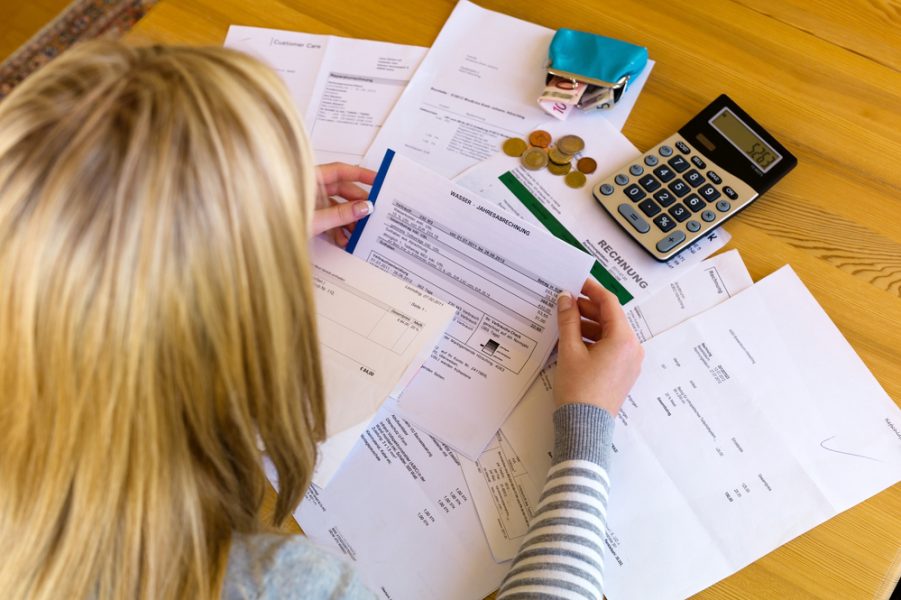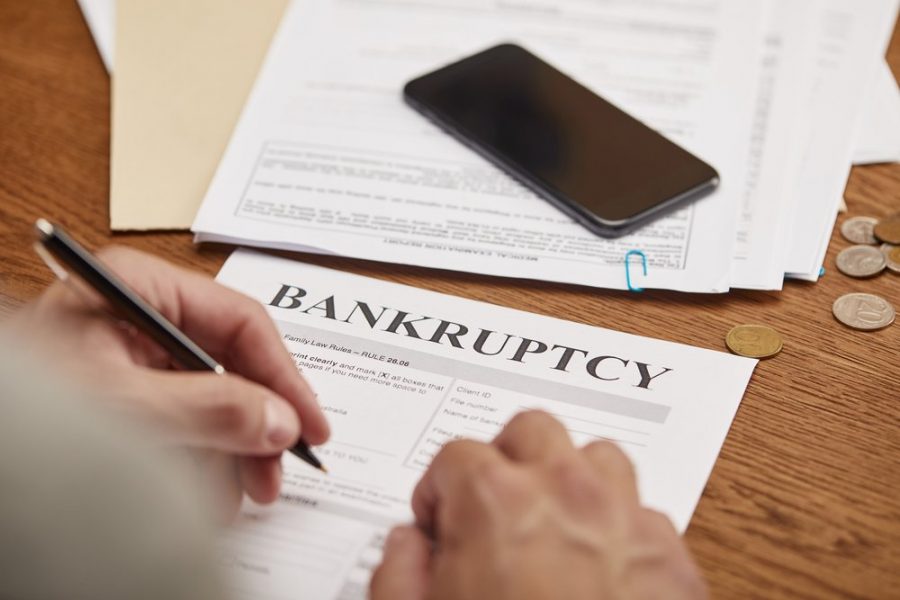Nobody wants to lose their home after years of working hard. Unfortunately, life circumstances could get in the way, and you may find yourself amidst financial hardship. When you receive a foreclosure notice, you’re at risk of losing your home. As you think of a way out, filing bankruptcy may come to mind to avoid foreclosure.
Does bankruptcy prevent foreclosure? Yes, as long as the home isn’t sold yet, filing for bankruptcy can help you keep your house longer. It won’t stop the foreclosure proceedings completely but it can delay them.
How Can Bankruptcy Help With Foreclosure?
When you’re facing foreclosure and you want to file for bankruptcy, you can choose between Chapter 7 and Chapter 13.
A Chapter 7 bankruptcy will temporarily stop the foreclosure proceedings for a period through an automatic stay order from the court. During that time, your assets will be used to settle your debt, including unsecured debt.
This type of bankruptcy allows you to seek alternative measures like selling your other real estate assets so that you can settle your missed mortgage payments and bring your loan current. Otherwise, the foreclosure proceedings will continue once the provision has been lifted. Your home, inevitably, will go on foreclosure sale.
Meanwhile, a Chapter 13 bankruptcy will allow you to save your home, but it won’t stop foreclosure permanently. A Chapter 13 bankruptcy involves negotiating a repayment plan with your mortgage lender, which you need to follow until you’ve paid off your arrears.
Provided that you made the mortgage payments as expected, you can stop a foreclosure sale and keep your home. If you don’t, the lender can trigger another foreclosure proceeding.
What is Bankruptcy’s Automatic Stay?
The automatic stay is a provision of the US bankruptcy law that orders creditors, credit collectors, individuals, and other debt collection entities to pause foreclosure proceedings. It also freezes persistent communication, mortgage debt collection efforts, and other court proceedings against the debtor.
While this bankruptcy law provision is in place, you’ll have breathing room until the court has approved a scheduled repayment plan if you file for Chapter 13. Under Chapter 7, you’ll experience relief too, but you might not be able to stay in the house after bankruptcy if it’s sold along with your other assets.
Can a Chapter 7 Bankruptcy Stop a Foreclosure?
Yes, this type of bankruptcy stops a foreclosure auction immediately. The bankruptcy court will order an automatic stay, which will delay the foreclosure proceedings for about 3 to 4 months, from the date you filed for bankruptcy to the date your debt is discharged. All collection activities and foreclosure proceedings will be suspended.
However, lenders can file a motion asking the court to lift the automatic stay and allow the foreclosure sale to resume. Unless the judge approves, the foreclosure sale can’t take place during that period. Filing such a request requires lenders to hire a lawyer, which could be a costly option and that’s why most of them just let the time pass for the automatic stay and set the foreclosure sale date afterward.
Note that Chapter 7 offers debt relief by selling your assets and using the proceeds to pay off the loan. It may discharge your debt but it won’t get rid of the lien on the property that’s used as collateral. You may no longer be legally obliged to pay back the loan but the lender can still enforce the lien and foreclose the house so that they can sell it and recover their monetary losses even partially.
The other commonly discharged debts include credit card charges, medical bills, utility bills, and personal loans from employers, friends, and family.
Should You File for a Chapter 7 when You’re Late with Mortgage Payments?
Filing for this type of bankruptcy isn’t recommended if you have little to no debt and you’re only filing to stop your home’s foreclosure. Aside from that, you’ll have to wait for 8 years before you can file bankruptcy again. Likewise, this bankruptcy stays in your credit report as a negative mark for up to 10 years.
You’re better off negotiating a more affordable repayment arrangement with your lender since the foreclosure process takes a while anyway. Once you bring the loan current by paying off all your past dues, interests, and penalties, the lender may vacate the foreclosure proceedings.
Can a Chapter 13 Bankruptcy Help Save Your Home?
A Chapter 13 bankruptcy offers a more permanent solution in the form of a repayment plan compared to the other type of bankruptcy. When you file for Chapter 13 bankruptcy, the court will issue an automatic stay order, which stops all collection and foreclosure efforts.
Chapter 13 bankruptcy is a good option if you have a steady source of income despite having a lot of debt. How long will chapter 13 delay foreclosure? Chapter 13 bankruptcy involves creating a repayment agreement, which usually lasts from 3 to 5 years, depending on how much you’re earning.
As long as you keep your end of the bargain, your debts will be discharged and your house will not be foreclosed. Otherwise, you can expect to face another foreclosure process to take place.
Aside from saving your house by bringing your loan payments current, a Chapter 13 bankruptcy can also help repay your other secured debts in a more manageable way. You and your lender may come up with a better repayment program that will allow you to pay off your debts without putting you in any undue financial hardship.
It can be challenging to choose which one is right for you. You may want to consult a bankruptcy attorney for proper guidance. Attorneys evaluate your situation and guide you in seeking solutions to your financial problems.
When Should You Use Chapter 13 Bankruptcy to Stop Foreclosure?
Filing for Chapter 13 bankruptcy to save your house from getting foreclosed should be your last resort. It’s better to consider other options first. For one, bankruptcy will leave a bad mark on your credit score for several years.
Instead of choosing that as your first option, why don’t you consider non-bankruptcy solutions instead? Try negotiating with the mortgage lender and ask if you could come up with a repayment program or seek out government programs, such as FHA loans that may help you keep up with your current mortgage payments.
Plus, filing for bankruptcy is expensive, especially if you’re already short of funds. You’re probably wondering how much it costs to file bankruptcy. You will pay a $338 filing fee for Chapter 7 and a $313 filing fee for Chapter 13 bankruptcy.
How Long Does it Take to File Bankruptcy to Stop Foreclosure?
When you’ve filed your bankruptcy petition, the automatic stay provision will be in effect immediately, which means foreclosure proceedings will be on hold. All foreclosure procedures will be on pause while the bankruptcy process is ongoing.
How Long Can a Foreclosure be Delayed?
Filing for bankruptcy can delay foreclosure for 3 to 4 months. It varies depending on how long the case is processed in bankruptcy courts and the type of filing. In general, Chapter 13 cases take longer than Chapter 7. If the bankruptcy petition is dismissed, the automatic stay is also lifted immediately.
Can a Bank Foreclose During Bankruptcies?
Yes, a bank may still be able to foreclose your home during bankruptcy if it successfully secured approval from the court. Banks can file a motion to the court to lift the automatic stay provision; otherwise, they aren’t allowed to continue with the foreclosure proceedings.
How Many Times Can You File for Bankruptcy to Stop a Foreclosure Sale?
There’s no limit set on the number of times you can file bankruptcy to stop or avoid foreclosure. However, you need to wait a set number of years since your last bankruptcy case to file another one. For instance, it takes 8 years before you can file another Chapter 7 bankruptcy if your first case is the same type. If you filed Chapter 13, you can file for another Chapter 13 after 2 years.
Conclusion
If you’re facing foreclosure, filing for Chapter 7 or Chapter 13 bankruptcy will halt the foreclosure proceedings temporarily, allowing you to find alternatives to save your home.
Before you seek bankruptcy relief, though, it’s best to seek other options first, such as negotiating with the lender, getting a loan modification, or applying for a government program that offers debt relief. Consulting a bankruptcy lawyer will also help.
Remember, a bankruptcy will leave a negative mark on your credit report between 7 and 10 years. During that time, you’ll find it hard to secure approval for new loans, such as car loans, or even struggle to find a new apartment. So, weigh your options carefully.







